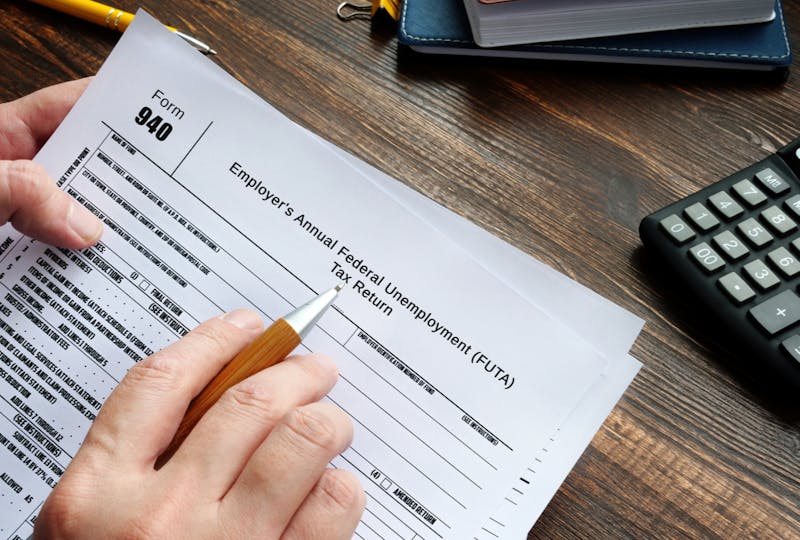As a small business owner, you may need to pay Federal Unemployment Tax (FUTA) and report the annual amount on Form 940, the Employer's Annual Federal Unemployment (FUTA) Tax Return. There are a few ways to determine if you will need to pay FUTA and report it; wages paid in any quarter equal $1,500 or more or if you paid at least one employee for any work completed in 20 or more weeks throughout the quarter. FUTA tax is only to be paid by you, the employer, and should not be paid by employees. To determine if you are required to deposit FUTA tax, check the IRS website for more guidelines.
When do I deposit my FUTA tax?
Since Form 940's due date is based on your FUTA tax deposit, the date you deposit FUTA tax is significant. If your FUTA tax liability is more than $500 at the end of a quarter, you must submit it by the end of the month following that quarter. If your FUTA tax liability is $500 or less, then the deposit is not due for the quarter and carries over to the next quarter. This process should continue until you have reached $500, and then you are required to deposit the FUTA tax at the end of the month following that quarter. If your FUTA tax deposit for the year is less than $500, then you have the option to make the deposit or use Form 940 to pay the tax.
When is Form 940 due?
If you have not deposited your FUTA tax for the year, Form 940 is due on January 31. Occasionally, deadlines set by the IRS fall on a weekend or holiday. If a due date is on a weekend or holiday, the IRS states that the due date is pushed until the next business day.
When is Form 940 due in 2024?
It is due Wednesday, January 31, 2024.
If you're still doing your employer and employee taxes by hand, let PaycheckCity Payroll do it for you! Payroll history is saved and used to autofill your Form 940. Try it free for 14 days, then it's only $199/year - unlimited companies, employees and payroll runs.
These free resources should not be taken as tax or legal advice. Content provided is intended as general information. Tax regulations and laws change and the impact of laws can vary. Consult a tax advisor, CPA or lawyer for guidance on your specific situation.




